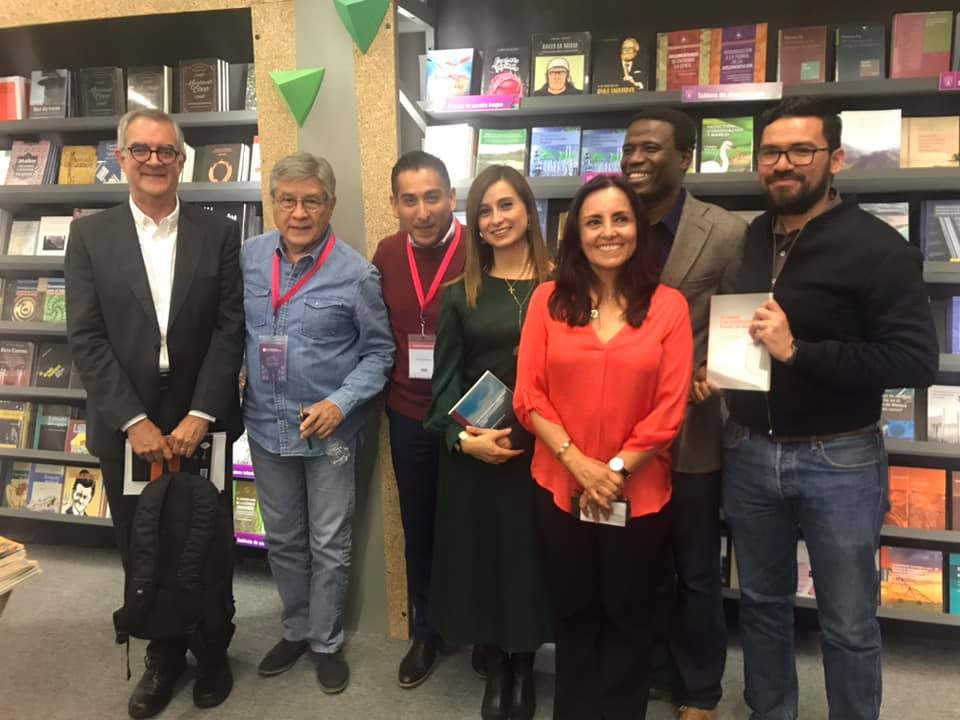
The Postgraduate Program of the Doctorate in City, Territory and Sustainability, is one of the final links in a comprehensive project to strengthen the area of urban and environmental studies, that was started in 1996 and included the formation of the Center for Research into the Environment and Territorial Development (CIMA), which started work in 1998, and introduction of the First Degree program of Urban Studies and the Environment (LUMA) in March 2000. The Doctorate combines with these options to give the studies of the LUMA coherence and continuity while supporting the consolidation of the CIMA Academic Group (CA-11, consolidated).
The Program also has antecedents in two earlier Programs: “The Historical Center and the City: Methods and Instruments of Intervention” (1992-1995) and “Urban Planning, City and Environment” (1994-1997), both in the framework of the International Convention celebrated between the University of Guadalajara, in Mexico, and the University of Valladolid, in Spain.
The Postgraduate Program was created with the participation of other study groups in the University Network, researchers/professors from the University Center of Social Sciences and Humanities (CUCSH), the University Center of Lagos de Moreno (CULagos), The University Center of the Coast (CUCosta), and the University Center of Economic and Administrative Studies (CUCEA). We also had the important collaboration of teachers from the Veracruzan University, the College of Tlaxcala, the Autonomous University of Nuevo León, and the University of Sinaloa.
Participating at an international level in the Doctorate were the University of Las Palmas in the Grand Canary, the Polytechnical University of Valencia and the Polytechnical University of Catalonia (in Spain); the University of Bío-Bío (Chile), The Central University of Venezuela, the National University of Colombia, the United Nations University and the Higher Institute of Architecture “La Cambre” (in Belgium), with the aim of complementing resources and capacities to promote a program of excellence. To this end a diagnosis was made through a comparative analysis of the courses on offer among plans for the formation of Doctors in Urbanism and matters pertaining to the procedures of managing territory, the city, and environmental processes; in this sense the proposals analyzed for the most part inclined towards a focus on the technical aspect.
For this reason, the Program undertook to focus on addressing fields of interest less studied in urban territorial planning, such as:
- Sustainable development and the implementation of indicators for analysis of the region and the country in a global context.
- Processes of Environmental Production.
- Social-economic and Cultural processes.
The program of the Doctorate was approved by the General University Council in 2001 and started operations in 2002. At the beginning of 2005, a first evaluation was made of the Program in terms of the contents of the proposal and the Decree issued in 2002, and its modification in 2004, thus bringing it up to date by adapting it to the guidelines established in the General Postgraduate Regulations of our University (2004), with indicators matching those of CONACYT, the institution evaluating and certifying postgraduate courses in Mexico, as well as to the current needs of the social-economic and institutional environment.
Subsequently the Program was updated in 2006, 2011 and 2016. In 2017 the Doctorate program was evaluated, and succeeded in maintaining the category of Consolidated within the National Program of Postgraduate Courses of Excellence (PNPC) at a national level, which creates expectations and the need to seek out ever more ambitious and rigorous levels of performance that can lead to international recognition in the next evaluations. Currently the Postgraduate program is working on all the information required for the dossier in anticipation of the next evaluation to be made this year, in 2021, as well as updating the Course of Studies to include the Guidelines for the Creation and Application of Knowledge, retaining the topics considered as a priority in research, focusing on gender, citizenship, poverty and empowerment.
In the course of its 19 years of existence, the Postgraduate Program has always supported the development of inclusive topics of research, related to vulnerable groups, such as old people, and children, and more recently, subjects of gender, women, and the city. In the course of its history the Postgraduate Program has qualified 119 students of whom 67 are men and 52 are women (44%). Currently there are 16 full time professors, of whom 9 are women (56%), and 43 regular students, of whom 42% are women.
Further, the academic history of the Postgraduate Program shows it to have had 210 students inscribed, 119 of them being awarded their degree, and 43 regular students belonging to the Generations 2018B, 2019B-GDL, 2019 B-Quito and 2020B (2021A college term). Of the generations in the program now, we have the second generation created by the Specific Convention celebrated with the Central University of Ecuador-UCE, in Quito, Ecuador, which has developed teaching work and PhD research in that institution.









